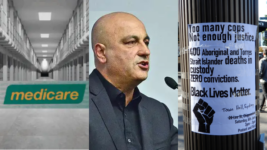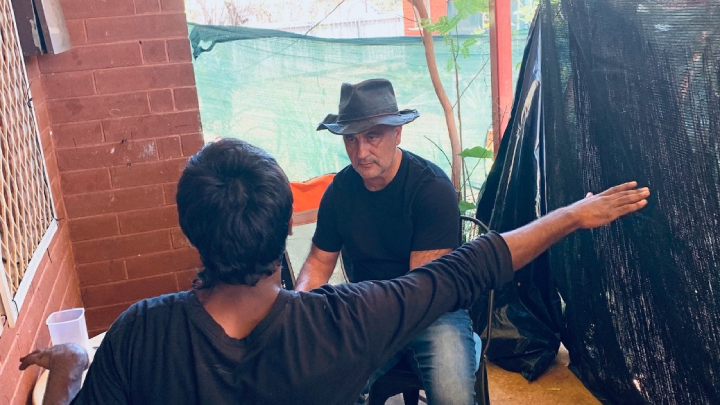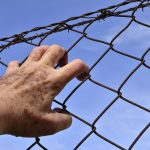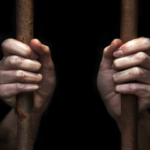Enshrining Prisoners’ Rights in Law: Interview with Social Justice Academic Gerry Georgatos

Tuesday the 15th of April 2025 marked the 34th anniversary since the tabling of the Royal Commission into Aboriginal Deaths in Custody, which delivered 339 recommendations, many of which have never been actioned, and this has resulted in no allaying of this issue, as, in fact, the government’s real time custody deaths dashboard reveals 590 First Nations people have died in custody since that time.
Deaths in custody occur when a person dies while being detained by police or corrective services, and this includes being killed whilst attempting to escape or as a result of a police operation. A key role of Australian police at inception was dealing with the continent’s First Peoples using force, and the law enforcement attitudes of those times continue to inform those of today.
The latest ABS custody figures reveal that of the 44,262 adults in Australian prisons last December, 15,711, or 35 percent of them were First Nations adults. However, when the fact that Aboriginal and Torres Strait Islander peoples only accounting for 3.8 percent of the entire population on this continent is considered, the disproportionate nature of this imprisonment rate is dumbfounding.
First Peoples custody deaths are often the result of violence or neglect. Cultures amongst corrective services are akin to those of police forces, which are marred by deep racism, and Aboriginal inmates are also refused adequate medical treatment once inside. However, when it comes to this rights-denying behaviour on the part of the authorities, all prisoners are denied their health.
The civil dead
Since the mid-1980s, Australia has prided itself on Medicare, which a universal healthcare scheme for all citizens and residents that either fully or partially covers the costs of their medical treatment. And such is the pride that’s invested in this that when those who’ve never experienced the prison system are told that prisoners are denied these benefits, it’s often met with disbelief.
About 40 percent of prisoners arrive in gaol already suffering a health condition, while prisons are further filled with people with mental health or cognitive disabilities, and instead of taking the opportunity that prison affords to help improve the health of these people, the government feigns the provision of regular healthcare and then denies and delays it to the serious detriment of inmates.
Founder of the National Suicide Prevention and Trauma Recovery Project Gerry Georgatos knows the plight of those on the inside all too well, as he’s worked within the Western Australian prison system in the role of an independent counsellor, as have other members of the NSPTRP, and they all have witnessed horror stories involving terminally ill prisoners long-denied even a basic check-up.
Sydney Criminal Lawyers spoke to veteran social justice advocate Gerry Georgatos about how all of the injustices and denials of human rights and basic healthcare that prisoners are subjected to on the inside would be much harder to maintain if the rights of the incarcerated were enshrined in Australian law.

Gerry, you’ve been a long-term social justice advocate and academic. Right now, you’re campaigning in respect of upholding the rights of our fellow community members whilst they’re being detained inside the Australian prison system.
Of course, this issue involves the long-term crisis in Aboriginal deaths in custody, which has only worsened over the 34 years since the Royal Commission into this crisis released its report on 15 April 1991.
So, how would you describe the state of the Australian prison system right on the 34th anniversary of that investigation’s report release?
Almost three decades on, there are still thereabouts 100 deaths in prison custody of Australians, which include at least 20 deaths in prison custody of First Peoples.
Though death rates are higher for Australians of non-Indigenous heritage, when we disaggregate to non-natural death rates and natural death rates, we find that First Peoples die at a much higher rate of non-natural causes.
Disaggregating further, we find that First People die by suicide at an even higher rate.
First Peoples in prisons also die much younger, and their average and median ages of deaths are more than ten years younger than the rest of the incarcerated.
If you die in an Australian prison aged 19, you are likely a Black youth, as more than 90 percent of prison deaths at that age are comprised of Black 19-year-olds, who are youths that from the beginning of life never stood a chance, being born into overwhelming unfairness and disadvantage.
If you die in an Australian prison aged 20, you were likely a Black youth, as at this age, 85 percent of the deaths are Black.
The Royal Commission delivered 339 recommendations, a thorough blueprint, on how to prevent First People dying in prison, and indeed, how to prevent the system disproportionately locking them up.
But a majority of these solutions were never implemented. Around the 30th anniversary of the report release, it came to light in NSW that the simple recommendation of removing hanging points in prison cells had not been actioned. This meant inmates could find a place from which to hang a makeshift noose.
Considering the authorities have had 34 years to action these reforms, many have become cynical that the powers that be will ever truly attempt to end these issues.
So, what do you say to people who have become resigned to the idea that these situations won’t be resolved?
No one should be dying in prison of unnatural deaths, but they do and at appalling rates.
We need to inform the public about these discriminative rates. We need the consciousness of Australia to understand that the report was not properly implemented, and that prisoners in this country effectively have their rights denied.
No one should have their most basic rights curtailed. This should abominate Australians. Without guaranteed rights we are limited in advocating for prisoners – even child inmates.
Another key issue you have long campaigned on is extending Medicare into prisons, as, unknown to much of the population, inmates aren’t provided that healthcare initiative when serving time.
In fact, as you’ve repeatedly pointed out in the past, it is more likely that inmates are denied basic healthcare in prison. Can you elaborate on the situation of prisoners’ health?
Prisons are the only places in Australia where there’s zero Medicare and therefore, healthcare is abysmal.
Health is neither guaranteed while one is incarcerated compared to health access in the community.
Prisoners can die from all sorts of causes. They can drop like flies and still nothing is reformed.
Therefore, their right to life is nowhere close to the equivalent of the wider community’s. Their right to healthcare, primary care, secondary care, allied healthcare stops at the prison gates.
Their health rights are denied. That is not up for debate, it is a fact. Even lawyers are abrogated of the capacity to advocate for prisoners while incarcerated, in terms of health needs and welfare needs.
If a prisoner attempts suicide nine times, the affected individual is never taken to a hospital, and if on the 10th attempt the prisoner dies, no one is held to account before the Australian legal system.
This also disempowers the Australian legal system as a protector of rights.
If a prisoner begs for health screenings after years of complaining about pain, and they’re eventually released, only to be diagnosed with stage 4 stomach and colon cancer, and they soon die afterwards, there is little the Australian legal system can do for their family.
Prisoners have no rights, and no access to external notification services where they can access and reach out to for support.
Prisoners’ lives do not matter.
Another major issue that goes unnoticed by the wider community that you’ve just been alluding to is the lack of any health assistance or services available to inmates on release.
This is the case for all inmates, but especially so for First Nations people on release. The issue is also pertinent to people who have no fixed address.
So, what is the situation like these days for inmates on release?
Little known are the horrific death rates of both First Peoples and non-Indigenous people, in their first-year post-release.
Obviously, nearly all these deaths after custody occurring in the first-year post-release are indisputably non-natural deaths.
My premise is that people leaving prison in general come out in worse primary and mental health states than whence they went in.
The death rates for post-release non-Indigenous inmates are four times the regular average. The death rates for First Peoples in the first year are near 10-times the normal rate for First Peoples.
Suicide post-release is the leading cause of death – and this is increasing.
So, Gerry, as you’ve been a long-term advocate for those incarcerated by the state, and you well understand that Australian corrections departments are unlikely to roll out policies to improve the health and welfare of prisoners, despite their duty of care, what is the answer?
Unlike the Nordic and Dutch nations where prisons have been reformed to be life transformative, genuinely rehabilitative, specialist therapeutic, restorative and educational prisons, in Australia, these same facilities are purely carceral.
There must be prisoner rights enshrined in law and until then, we are a nation not only a laggard but obscenely discriminative.
The only recommendation not accepted by the Australian Senate from the 339 recommendations of the Royal Commission into Aboriginal Deaths in Custody report was recommendation 329.
Recommendation 329 calls for a national standards body to draft and introduce legislation embodying standard guidelines.
Had recommendation 329 been endorsed, the creation of warranted legislation could have ensured prisoner rights are protected as equivalent to all Australians, in well-resourced and, therefore, humane and safer custodial settings.
Recommendation 329 was one of the few recommendations which explicitly required the crafting of legislation – to raise, ensure and preserve rights for prisoners.
So, you’re talking about something like a prisoner’s bill of rights?
Prisoner rights enshrined in law would prevent them being diminished or removed as is diabolically the current nightmare.
Australia has to stop treating prisoners akin to how lepers were historically mistreated.







